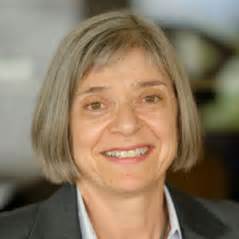The Deputy Director-General for Policy on her aims as head of this portfolio and possible interaction with ILO Staff and the Staff Union.
In her office on the 7th floor at ILO headquarters in Geneva, Deborah Greenfield is waiting for me, to give her first interview with Union Magazine. American Trade unionist and newly appointed as Deputy Director-General for Policy, Deborah is more than happy to be part of an ILO team, in which she has already found a lot of expertise and commitment from her new colleagues. With a ready smile, she agreed to talk to me, in the early afternoon of 16 June 2016.
Union: You took over as the ILO’s Deputy Director-General for Policy on the 3rd of May 2016. Could you please introduce yourself to ILO staff?
Deborah Greenfield: First, let me say that I am delighted to be here in Geneva and I think this is a huge opportunity to work with so many talented colleagues on critical issues involving workers and the world of work.
In brief, I was born in New York City and have worked in Washington DC for the last 35 years. I’m a lawyer by training and I have spent my entire career working on issues involving work. I worked for Unions, the US Department of Labour, the American Federation of Labour and Congress of Industrial Organizations (AFL-CIO) and right before I came to the department, I worked again for the Department of Labour, but as a political appointee in the Obama Administration.
Union: What does the ILO represent for you?
For me the ILO is really the world’s premier institution focusing on issues about the employment relationship in the world of work. I can’t think of a more exciting and significant institution to be placing all of my efforts, using all my experience right now. I think also that, unlike working at the country level, the ILO to me represents a very different way of working. We talk about the unique tripartite structure and social dialogue; it’s very different from the way that I’m accustomed to work in the US on labour issues. For me, it is an opportunity to develop solutions that have some sustainability to them, because the institution itself requires buy-in from all the constituents.
Union: What are your aims as head of this portfolio?
I would like to build on the work of my predecessor Sandra Polaski. I want to continue to make the ILO more influential around the world in the global discussion about the role that work plays in economic development and economic sustainability in moving beyond economic crisis and post-crisis period. But it is not just being more influential in the kind of economic forums that we have access to; it is also looking forward at what the world of work will look like and how we can make sure that we are protecting workers as the nature of work changes. For example, the nature of employment relationship shifts and becomes even more precarious for millions of workers than it is now. Being able to insert ourselves at the head of the dialogue about what’s to come not just what it is.
Union: You have experience from your previous involvement in the labour movement, in particular with the AFL-CIO in the US. As a high-level manager, how do you see your future work, and the possible interactions with the staff?
In my last job at the Department of Labour where I was the deputy solicitor and ran a national office of 750 people, I’ve always found that the expertise really goes deep in an organization and I’m certainly finding that out at the ILO: while I have many dealings with people at the high level, the expertise is often at the staff level. I want to make sure that everybody has an opportunity to do his or her best, to grow professionally and to work in a more integrated way than perhaps we do now. I think we’ve made a lot of strides in that respect but I really want to make sure that our portfolio is knitted together with the field portfolio for example, which means giving our technical experts much more of an opportunity and a licence and mandate to work closely with our field colleagues.
Union: From the US to Switzerland – how does it feel being in Geneva as a new ILO Official?
Well it feels great but I have to say that there are not enough hours in a day to do this job. So I can’t say that I spend a lot of time going hiking or travelling around or even exploring Geneva. That will come I am sure, but I am still in a process of immersing myself in absolutely everything that this very broad portfolio entails.
Union: Do you have a message for colleagues and the Staff Union…
As I said earlier, I am so impressed with the expertise and the commitment of people here. It is truly an honour and a pleasure to work with people. I just came out of the two-week International Labour Conference where I was the Director-General’s representative on the global supply chains discussions. And there, I really saw how so many people who work here and staff members completely put their lives on hold to make things happen because we are advancing a critical agenda involving workers and employers, and strengthening the decent work agenda. So I have tremendous respect for my colleagues and staff in the ILO.
Of course I came from the Union movement and I think Unions play an important role at the workplace. I look forward to seeing what role the Staff Union plays here at the ILO.
Mamadou Kaba SOUARE
